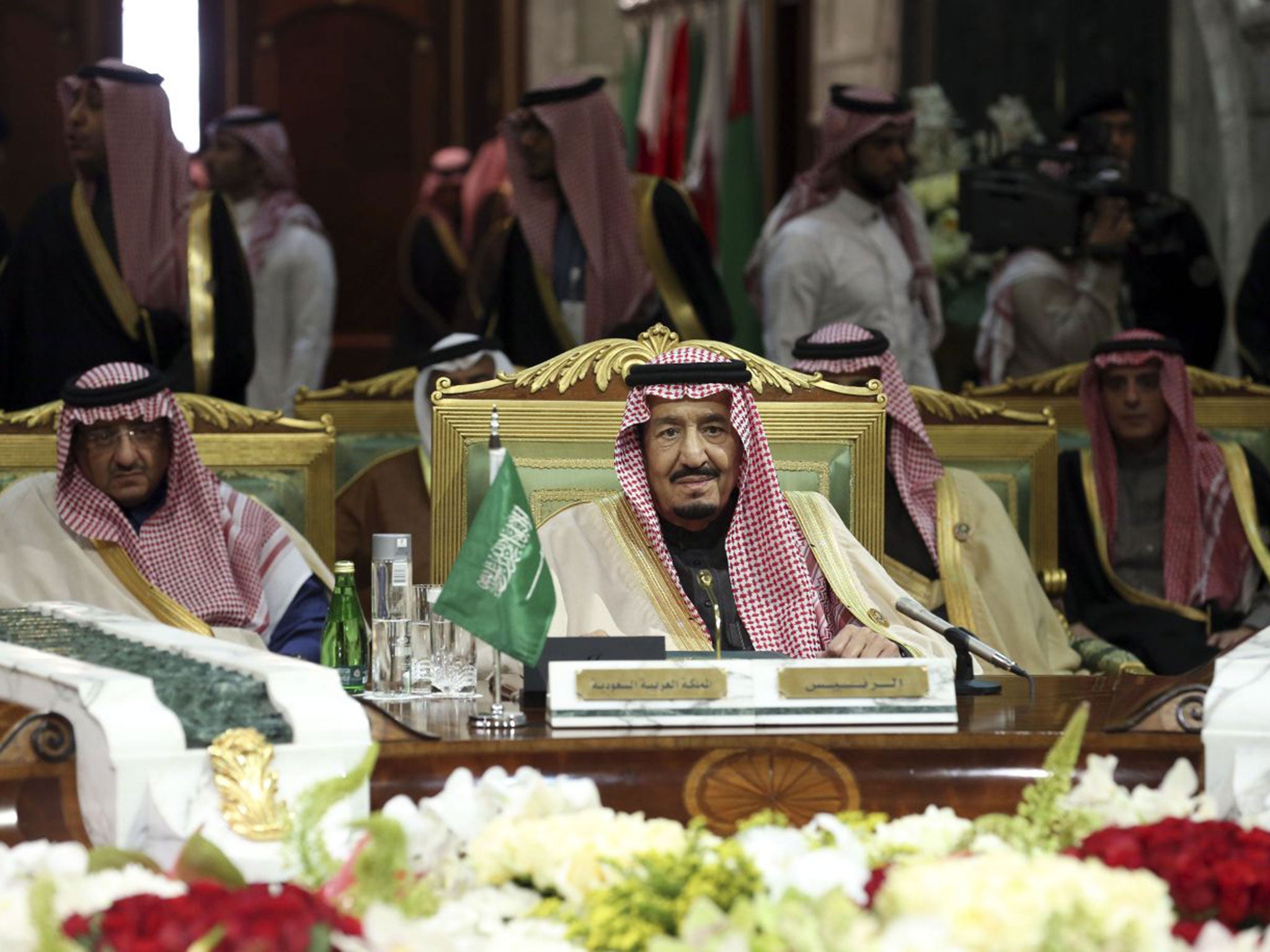Here's one huge sign that Saudi Arabia is in for a difficult new year
The kingdom plans to remove subsidies - a dangerous move for just about any autocratic government

Your support helps us to tell the story
From reproductive rights to climate change to Big Tech, The Independent is on the ground when the story is developing. Whether it's investigating the financials of Elon Musk's pro-Trump PAC or producing our latest documentary, 'The A Word', which shines a light on the American women fighting for reproductive rights, we know how important it is to parse out the facts from the messaging.
At such a critical moment in US history, we need reporters on the ground. Your donation allows us to keep sending journalists to speak to both sides of the story.
The Independent is trusted by Americans across the entire political spectrum. And unlike many other quality news outlets, we choose not to lock Americans out of our reporting and analysis with paywalls. We believe quality journalism should be available to everyone, paid for by those who can afford it.
Your support makes all the difference.A number of oil-dependent countries could see their fortunes turn in the new year, thanks to a global plunge in crude prices and the possibility of increased supply thanks to the anticipated removal of most oil-related sanctions on Iran.
Although Saudi Arabia is second in the world in proven reserves and daily production — a gaudy 9.7 million barrels per day in 2014 — there are already signs that the country isn't going to remain unscathed.
On December 28, the Saudi government announced a budget that included an unprecedented round of austerity measures.
According to Reuters, Saudi Arabia will cut spending and implement a value-added tax, a notable move for a country with a cradle-to-grave welfare system for most citizens and very little taxation.
Riyadh will also be taking “steps that will directly hit the purchasing power of citizens — in particular, raising domestic gasoline, kerosene, water and electricity prices,” Reuters reported.
Removing subsidies is a dangerous move for just about any autocratic government. The Saudi monarchy, like many other monarchs and dictators, derive a degree of legitimacy, as well as crucial social and political calm, from its ability to deliver a comfortable life for its subjects even amid a total absence of political or civil liberties.
Subsidy cuts have stoked widespread protests in Middle Eastern autocracies before, as they did in Sudan in 2013.
But austerity might be especially dangerous for a Saudi government fighting a controversial war in Yemen, facing potential threats from Isis, and stoking tensions among an already restive Shiite minority.
Low oil prices and the resulting austerity measures are just one of numerous pressures on Saudi stability in the coming year.
It's going to be a tough year for major oil producers in general.

Oil plunged to under $38 a barrel by December, with Goldman Sachs raising the possibility that the price could fall as low as $20 in the coming year.
The implementation of the Iran nuclear deal, which is expected to occur sometime in early 2016, will lift sanctions on the country's oil exports, bringing a heightened supply to the international market at a time when prices are already depressed.
The rivalry between Saudi Arabia and oil producers Iran and Russia might also encourage Riyadh to raise production in order to drive down prices and cut into their opponents' bottom line.
A peace deal in Ukraine — an outside possibility in 2016 — would assumably lift sanctions on Russian oil and gas as well.

Meanwhile, Saudi Arabia is leading a coalition of Arab countries fighting to restore the internationally recognised governement in Yemen after it was overthrown by an Iranian-backed rebel movement in early 2015.
The risky and expensive Yemen operation has plenty of potential for strategic blowback, as it brings Saudi Arabia into indirect conflict with Iran and has drawn criticism over Riyadh's alleged human-rights abuses during the campaign.
Isis has planned or carried out attacks in Saudi Arabia repeatedly over the past year, including an August bombing of a Saudi military mosque that left 13 people dead.
Other incidents, like the September 24 hajj stampede that killed as many as 2,177 people, or the October confirmation of the death sentence of one of the country's most prominent Shiite clerics, suggest that the country is less stable, and its leadership less in control, than it may seem.
Throw in low or even cratering oil prices and a new round of austerity, and Saudi Arabia's 2016 starts to look a lot more complicated.
Saudi Arabia could always cut its own oil production in an attempt to drive prices up and raise state revenue. But that risks enriching oil producers like Russia and Iran as well, in a time when Riyadh is at odds with both governments.
In the coming year, Saudi Arabia's internal stability and international strategic posture might be in conflict, and it's unclear whether Riyadh will be able to balance both of them.
Read more:
• These 6 nightmare charts most worry the Bank of England about the financial system
• ISIS' 17-year-old postergirl was passed around as a sex slave before being beaten to death
• The 26 happiest, richest, healthiest, and most crime-free countries in the world
Read the original article on Business Insider UK. © 2015. Follow Business Insider UK on Twitter.
Join our commenting forum
Join thought-provoking conversations, follow other Independent readers and see their replies
Comments